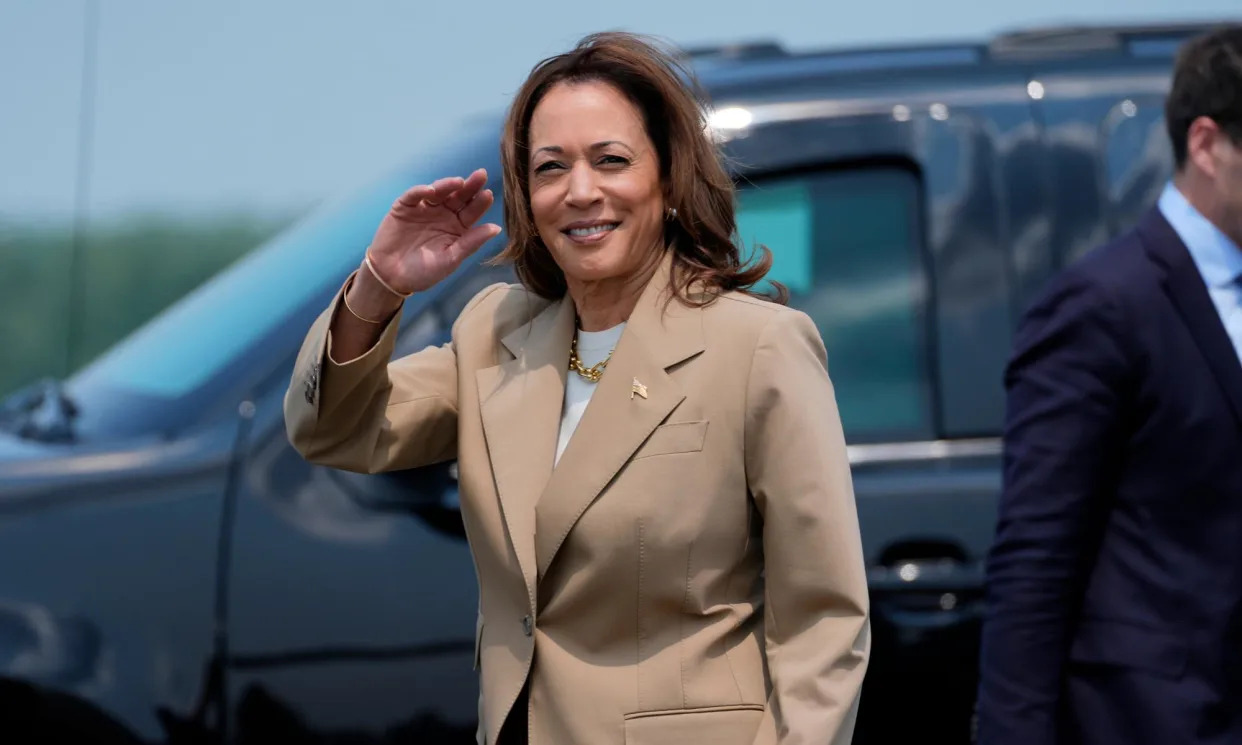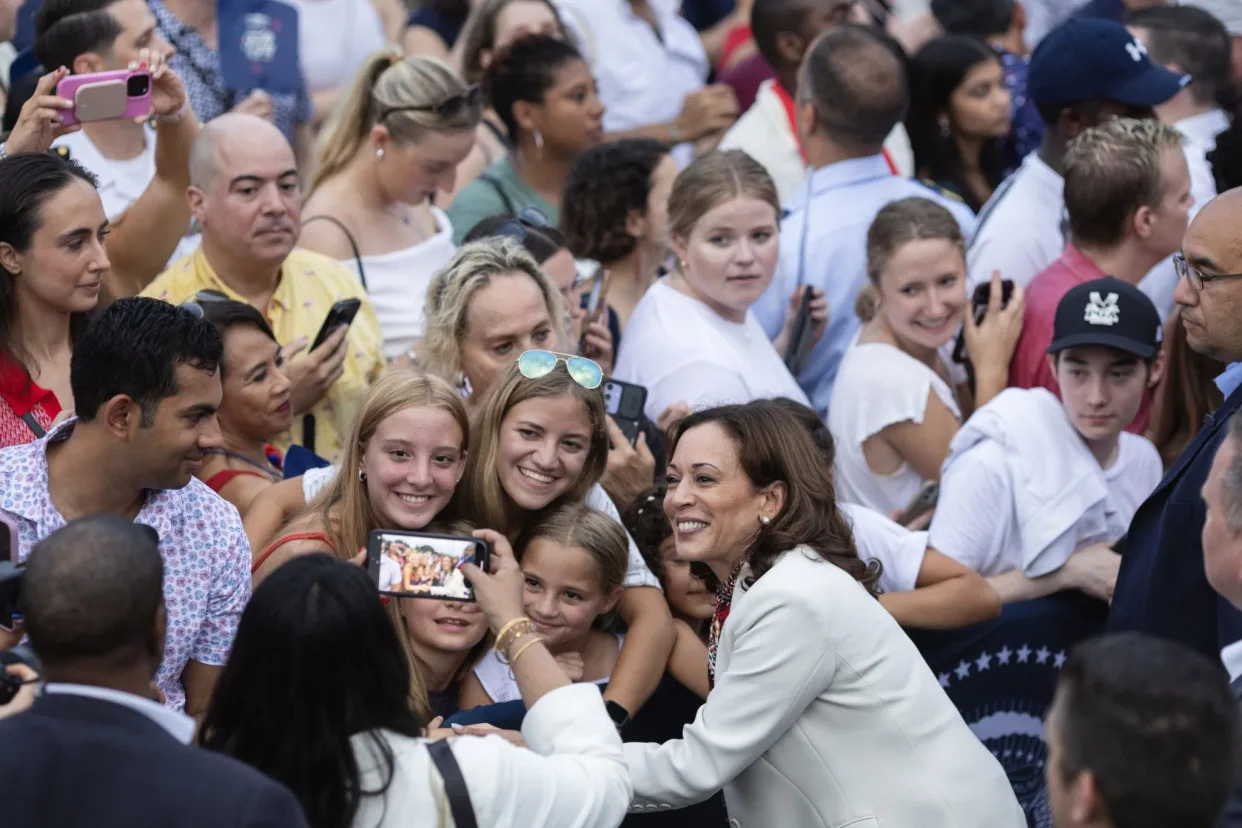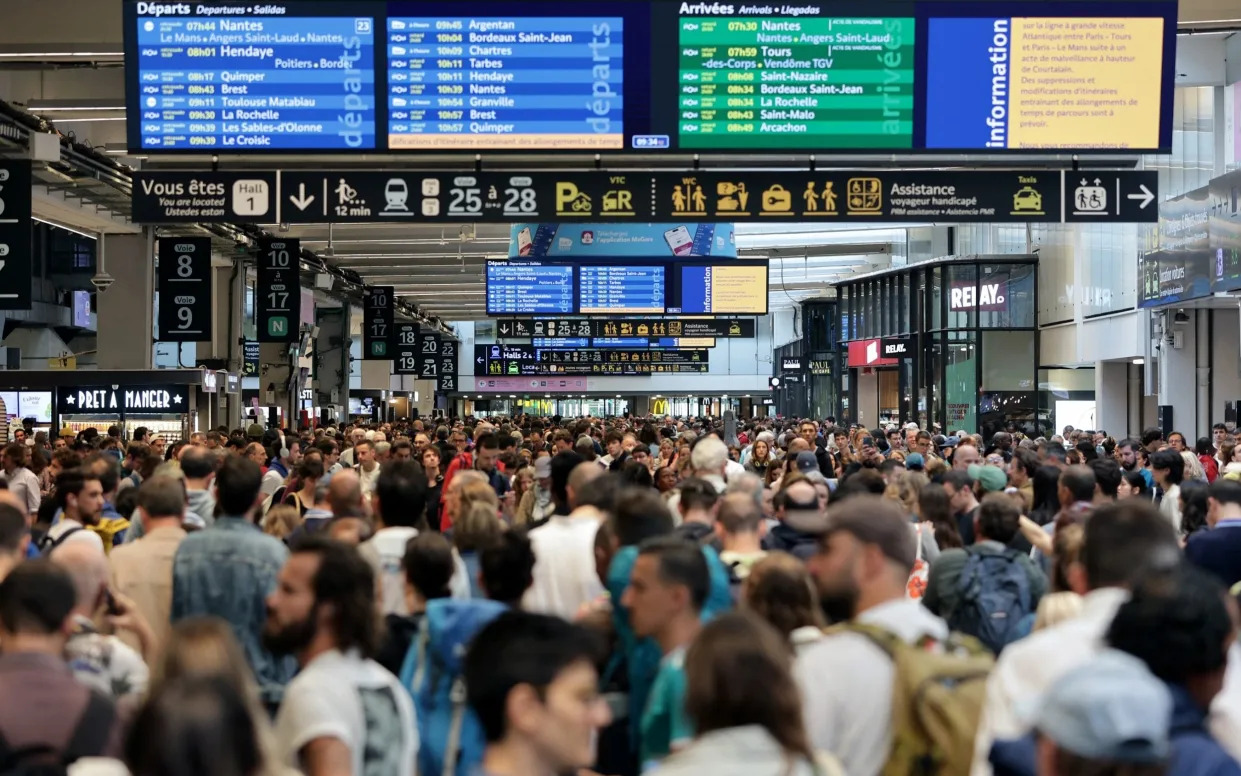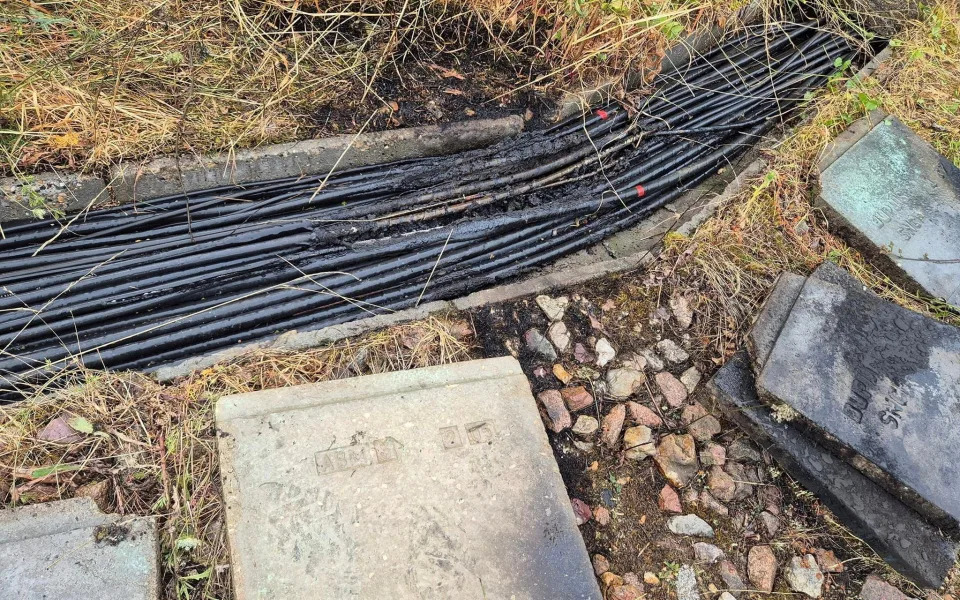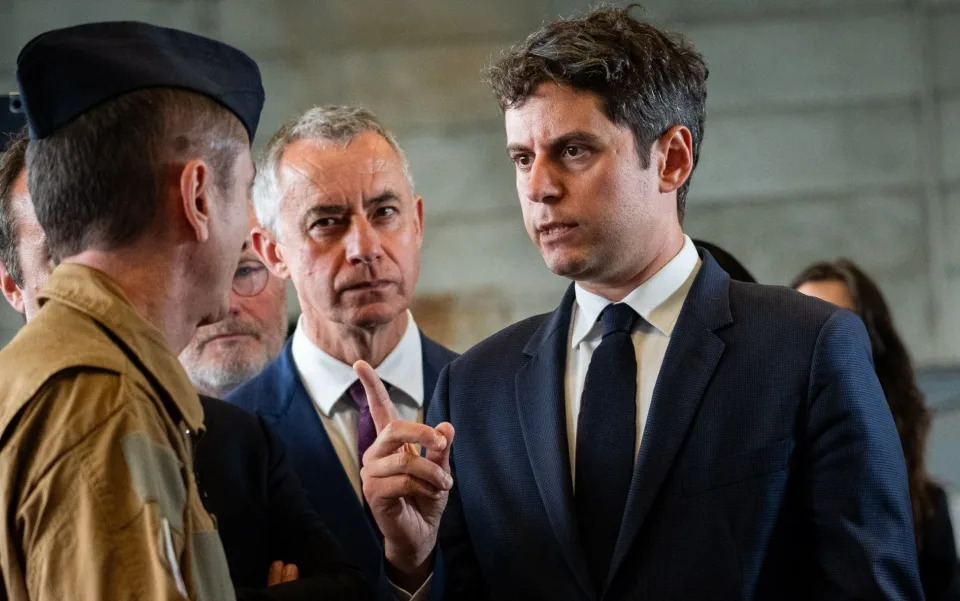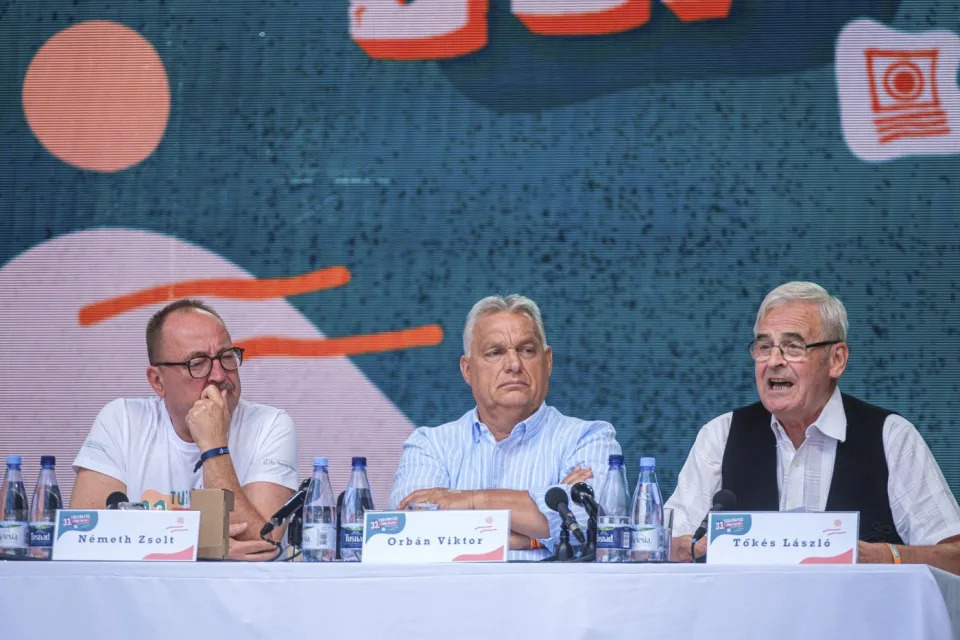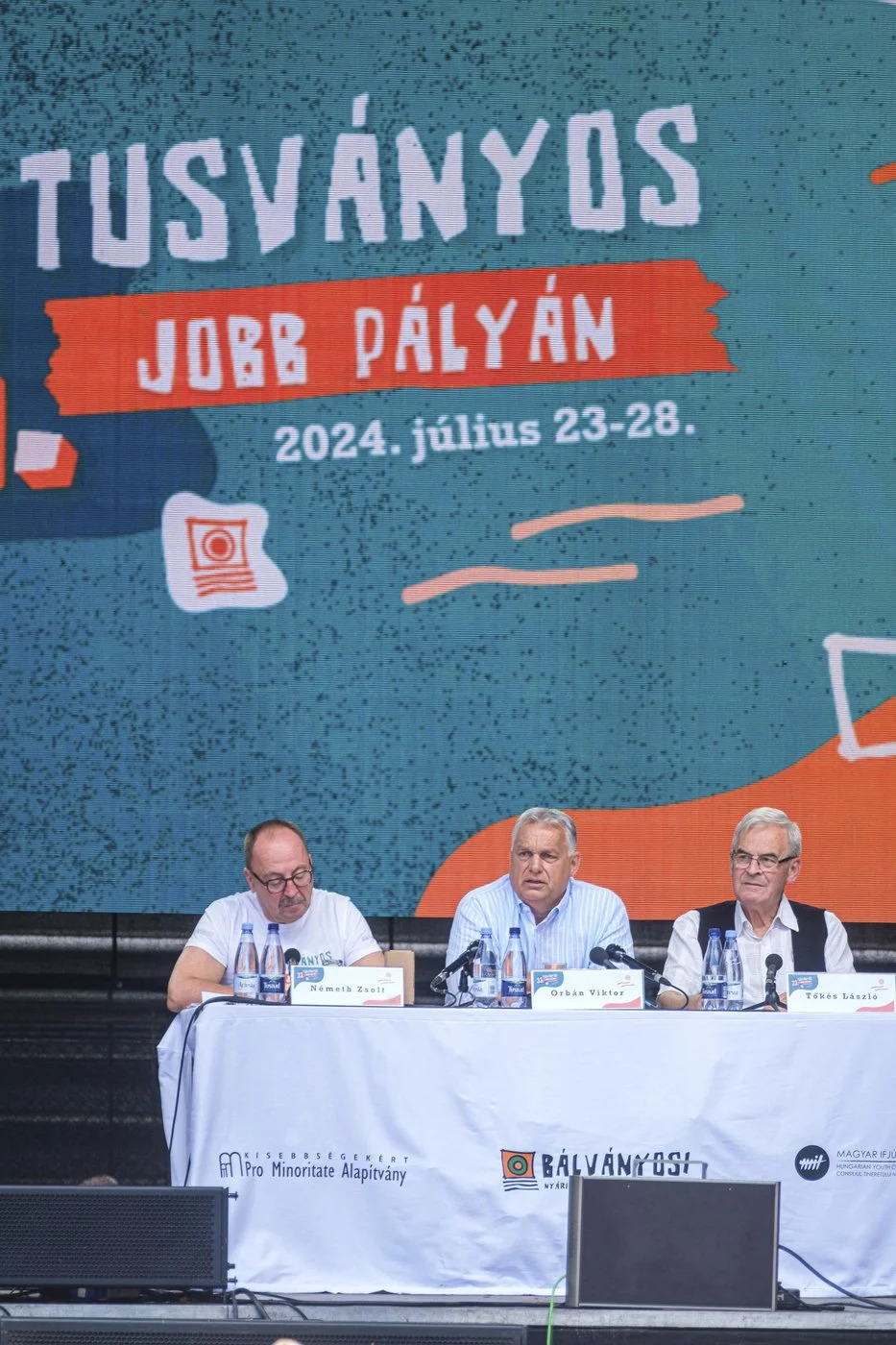KELSEY WALSH, GABRIELLA ABDUL-HAKIM and ISABELLA MURRAY
Sat, 27 July 2024 a
Harris camp responds to Trump telling Christians they 'don't have to vote again' if he gets elected
As former President Donald Trump wrapped his nearly 75-minute speech on Friday night, he delivered a final pitch to the Christian conservative crowd, saying if they vote for him on Election Day, they would never be obligated to vote again.
"I don't care how, but you have to get out and vote," Trump said at Turning Point Action's Believers Summit in West Palm Beach. "Christians, get out and vote just this time."
"You won't have to do it anymore. Four more years. You know what? It'll be fixed," Trump said.
He added: "I love you, Christians. I'm a Christian. I love you, get out, you gotta get out and vote. In four years, you don't have to vote again, we'll have it fixed so good you're not going to have to vote."
The Harris campaign is characterizing Trump's comment that if Christians vote this one time they won't have to do it anymore as a "vow to end democracy."
"When Vice President Harris says this election is about freedom she means it. Our democracy is under assault by criminal Donald Trump," Harris for President Spokesperson James Singer said. "Donald Trump wants to take America backward, to a politics of hate, chaos, and fear – this November America will unite around Vice President Kamala Harris to stop him."
The gathering centered around divine intervention – where Trump reiterated that the power of prayer and the grace of Almighty God saved his life two weeks ago when a bullet struck him in an attempted assassination.
"We want to thank each and every one of the believers in this room for your prayers and your incredible support. I really did appreciate it. Something was working, that we know, something was working," Trump opened his remarks. "I stand before you tonight, thanks to the power of prayer and the grace of Almighty God."
Trump also suggested that Christians don't vote "proportionately," which Trump often bickers about on the campaign trail.
"I don't want to scold you, but do you know that Christians do not vote proportionately?" Trump asked the crowd.
Trump's comments made the rounds on social media as users suggested that his comments sounded similar to when he commented that he'd be a dictator, but just on "day one" and suggested that Trump was alluding to never leaving the White House.
The Trump campaign released a statement clarifying what the former president might have meant with his message to Christian voters, his campaign suggested he was talking about the "importance of faith," "uniting the country," and bringing prosperity."
"President Trump was talking about the importance of faith, uniting this country and bringing prosperity to every American, as opposed to the divisive political environment that has sowed so much division and even resulted in an assassination attempt," Trump campaign spokesperson Steven Cheung wrote in a statement.

